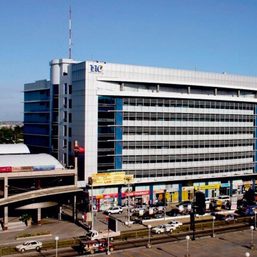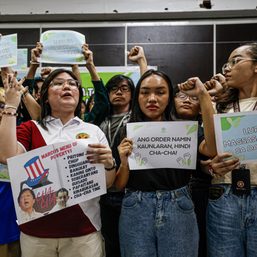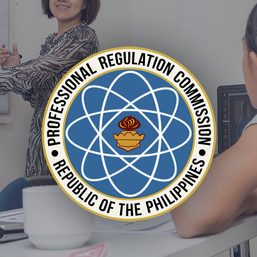SUMMARY
This is AI generated summarization, which may have errors. For context, always refer to the full article.
![[OPINION] The Filipino Teacher, ‘quarantined’ education, and the need for critical pedagogy](https://www.rappler.com/tachyon/2020/07/Pedagogy-Critical.jpg)
In this milieu that inspires everyone to denounce the silence of others, where do we situate the Filipino teacher?
Despite well-intentioned webinars that explore the nuances of digital pedagogy and the e-learning landscape, few platforms have attempted to examine how these times may serve as leverage for teachers to consider teaching practices as a site of resistance.
<h1>The Filipino teacher and critical pedagogy</h1>
The Commission on Higher Education (CHED) recently announced its decision to push through with class openings for SY 2020-2021 through flexible learning, which involves a combination of digital and non-digital technology. Meanwhile, the Department of Education (DepEd) maintained its stand on the class opening this August and recommended the conduct of face-to-face classes in areas with low-risk COVID-19 transmission. (READ: [ANALYSIS] School opening 2020: Immediate concerns, longer-term structural reforms)
CHED and DepEd’s decisions are frowned upon by critics since they marginalize far-flung communities, which may not share the privileges of premier universities in urban areas. But should classes resume this August, issues on poverty and mental health are challenges which teachers may have to confront while cultivating a safe and critical platform for students from different walks of life.
Therefore, we ask: how can the Filipino teacher foster a space that interrogates thoughts and actions in a virtual sphere, alongside the psycho-social conditions brought about by the pandemic? Are these the best times – in the time of a global health emergency and corrosion of Filipino values and culture – to live by the principles of critical and liberatory pedagogy o ng isang kritikal at mapagpalayang edukasyon?
As someone who has spent the last 7 years in the academia and community education, and is now a iskolar ng bayan pursuing a post-graduate program, it is a relief to discover that I have been inadvertently striving to teach through what Bell Hooks, author of the book Teaching to Transgress: Education as the Practice of Freedom, terms as critical and liberatory pedagogy.
This pedagogy allows us to endeavor towards leaving our old ways of thinking, knowing, and doing – which may first cause us confusion and disorientation, but is the kind of education that may liberate this generation and the next generations from greater forces that disintegrate the moral fabric of our country.
As an academic myself, I believe that this teaching practice, inspired by Brazilian educator Paulo Freire’s Pedagogy of the Oppressed, is what the times demand from us, not only as twenty-first century teachers, but also as “quarantined” teachers confined within our homes.
<h1>Critical pedagogy, “quarantined” education, and the Filipino teacher in society</h1>
The challenge is: how can Filipino teachers transcend the learning experience at a time when learning has to take place virtually, disparaging the power of interpersonal conversations, which were practically privileged pre-COVID? How can teachers stop the cycle of “banking education,” that regards students as passive receivers of knowledge, and embrace instead a problem-solving social inquiry?
Since time immemorial, the nature of education has been inherently a vertical or top-down approach, giving the teacher absolute authority in the classroom and leaving students voiceless and misrepresented – or “oppressed” as what Freire calls it. (READ: [OPINION] A teacher’s plight: The problem in our educational system)
The concept of “banking education” treats learners as mere objects rather than humanized subjects who are capable of “conscientization” or critical consciousness, leading to social transformation and development.
This concept and state of mind should no longer have a place in this time and age, especially during this pandemic and in this critical political climate, where the intellectual are despised and the misinformed continue to blindly support and enable the agenda of the administration.
In a temporary “quarantined” education, and by the time everything will have normalized, we are urged to revitalize our teaching perspectives by striving to work towards self-actualization and the holistic well-being of our students, who are our co-subjects in learning.
I concur with Bell Hooks when she aptly expressed that to be able to create a critical and liberatory learning environment, “teachers should feel the responsibility to be self-actualized individuals,” because inspiration often emanates from our speech and teaching principles, which may help shape the criticality of our students.
This is a herculean task for the Filipino teacher to fulfill, especially in an e-learning sphere where we have to shift our teaching practices to a virtual universe while it is anchored on critical pedagogy. Teaching using this philosophy, also sometimes called engaged pedagogy, may push us to go beyond boundaries and imbibe an authentic dialectic with students, making them part of the liberating process of learning.
It is interesting to mention that critical pedagogy is not selective in the specialization where it may be deemed fit. The Filipino teacher, resilient and brilliant, may essentially weave this pedagogy into the social sciences, communication and media studies, arts and humanities, and even into the hard sciences by covering the curricular topics while finding their place within the issues of the current milieu and time.
Sa ating daan patungo sa isang kritikal at mapagpalayang edukasyon, it is comforting to learn that the academia is not alone in this quest; that the idea of education as the practice of freedom or liberatory pedagogy extends to the institutions of religion, public service, and even media.
Despite the promise of this pedagogy, the road will be rough for the Filipino teacher, and as educators, we ask ourselves: are we willing to go against the grain to embrace the need for a critical and liberatory pedagogy in the virtual classroom and beyond? – Rappler.com
Ernesto Cordero Collo, Jr is a graduate scholar (PhD in Development Communication), at the University of the Philippines-Los Baños, and is part of the Communication Faculty at Don Mariano Marcos Memorial State University.
Add a comment
How does this make you feel?


![[Time Trowel] Evolution and the sneakiness of COVID](https://www.rappler.com/tachyon/2024/02/tl-evolution-covid.jpg?resize=257%2C257&crop=455px%2C0px%2C1080px%2C1080px)




![[OPINION] Moving beyond blaming teachers: The call for regulatory deregulation](https://www.rappler.com/tachyon/2024/02/Moving-Beyond-Blaming-Teachers-The-Call-for-Regulatory-Deregulation.jpg?resize=257%2C257&crop=262px%2C0px%2C720px%2C720px)


There are no comments yet. Add your comment to start the conversation.